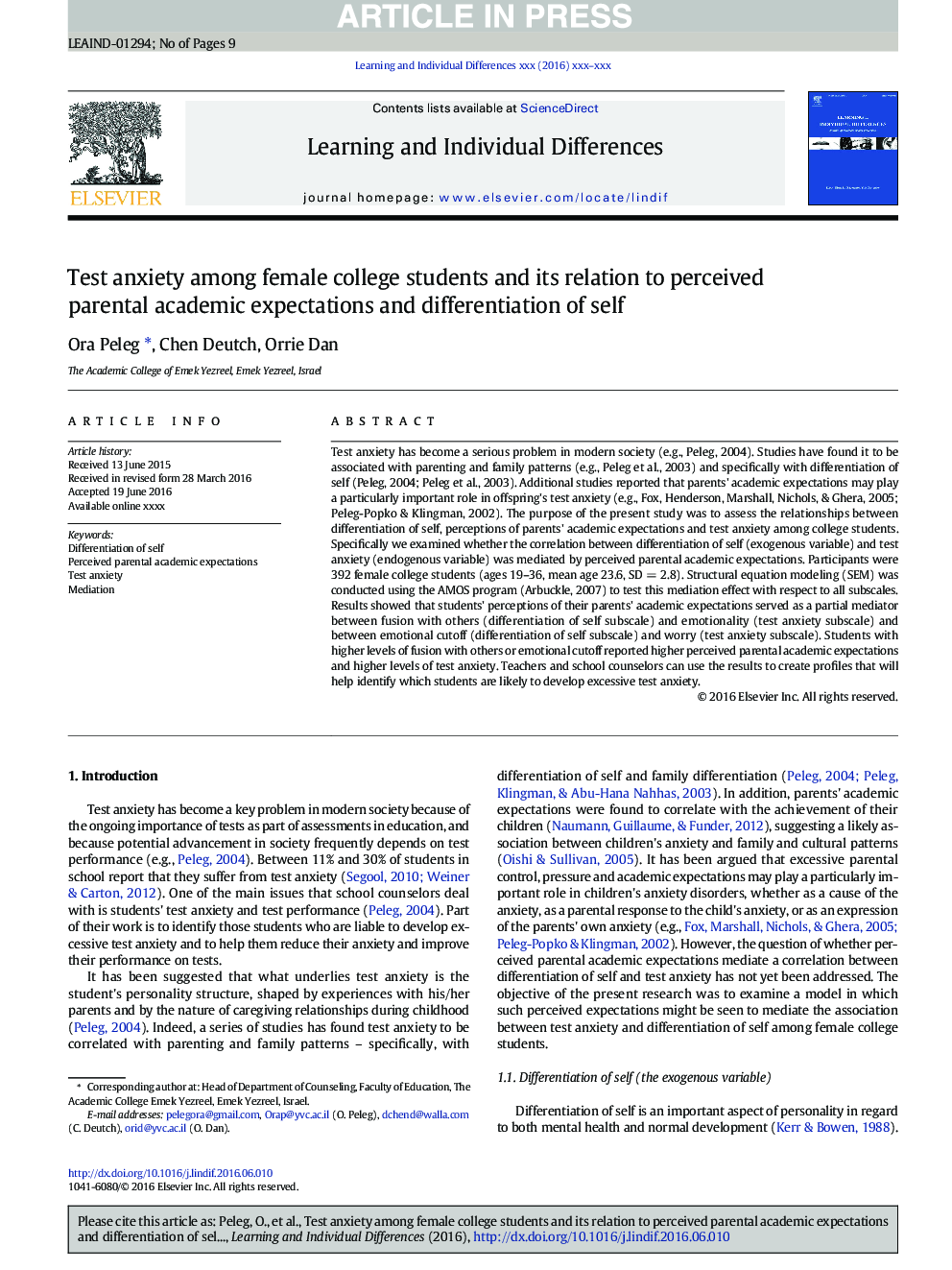| Article ID | Journal | Published Year | Pages | File Type |
|---|---|---|---|---|
| 6844842 | Learning and Individual Differences | 2016 | 9 Pages |
Abstract
Test anxiety has become a serious problem in modern society (e.g., Peleg, 2004). Studies have found it to be associated with parenting and family patterns (e.g., Peleg et al., 2003) and specifically with differentiation of self (Peleg, 2004; Peleg et al., 2003). Additional studies reported that parents' academic expectations may play a particularly important role in offspring's test anxiety (e.g., Fox, Henderson, Marshall, Nichols, & Ghera, 2005; Peleg-Popko & Klingman, 2002). The purpose of the present study was to assess the relationships between differentiation of self, perceptions of parents' academic expectations and test anxiety among college students. Specifically we examined whether the correlation between differentiation of self (exogenous variable) and test anxiety (endogenous variable) was mediated by perceived parental academic expectations. Participants were 392 female college students (ages 19-36, mean age 23.6, SDÂ =Â 2.8). Structural equation modeling (SEM) was conducted using the AMOS program (Arbuckle, 2007) to test this mediation effect with respect to all subscales. Results showed that students' perceptions of their parents' academic expectations served as a partial mediator between fusion with others (differentiation of self subscale) and emotionality (test anxiety subscale) and between emotional cutoff (differentiation of self subscale) and worry (test anxiety subscale). Students with higher levels of fusion with others or emotional cutoff reported higher perceived parental academic expectations and higher levels of test anxiety. Teachers and school counselors can use the results to create profiles that will help identify which students are likely to develop excessive test anxiety.
Related Topics
Social Sciences and Humanities
Psychology
Developmental and Educational Psychology
Authors
Ora Peleg, Chen Deutch, Orrie Dan,
